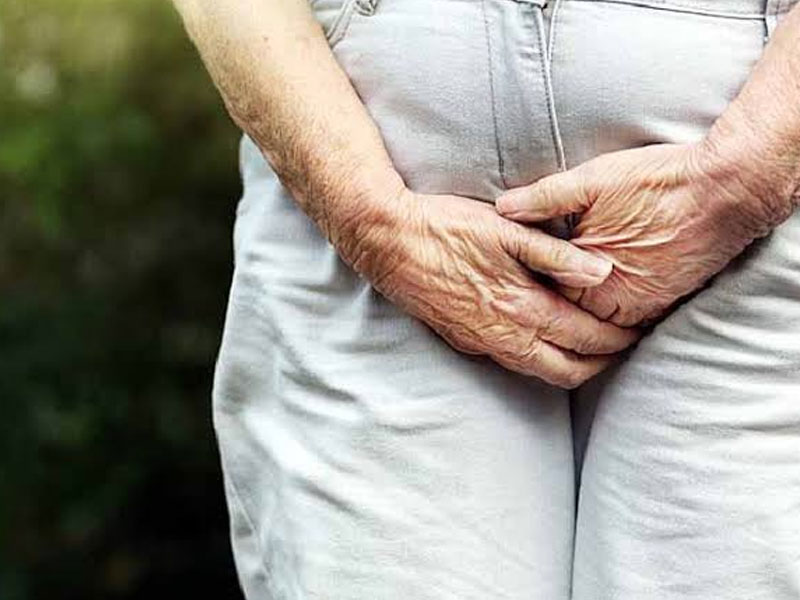
Incontinence is a condition that affects a person’s ability to control urination and often leads to leaks. This is commonly observed among older people, who often resort to wearing adult diapers. However, prolonged periods of wearing diapers can lead to IAD (incontinence-associated dermatitis), a condition that causes the skin to erode owing to moisture making it susceptible to rashes, redness, burning, or itching sensations. Such skin damage has both physical and mental consequences. Adult diaper-induced rashes if not treated on time can lead to secondary infections resulting in a longer stay at hospitals and increased care costs.
Table of Content:-
Winter further aggravates the risk of diaper-induced skin rashes as the skin is already dry and fragile owing to the cold temperature. The reduced bladder control during winter coupled with the frequent urge to pee due to less fluid loss through sweat also adds up to increased discomfort. Onlymyhealth editorial team spoke to Ms. Maharukh T Rustomjee Founder and Managing Partner of AmaterasuLifesciences LLP, to know about some tips for elderly to deal with incontinence.
Tips for senior citizens to deal with incontinence
Following the tips discussed here can help senior citizens effectively deal with incontinence during winter:
1. Plan your diet based on your health conditions

Be mindful of what you eat as you don’t want to consume anything that irritates your bladder. It would be a good idea to stay away from tomato-based foods, citrus fruits, artificial sweeteners, alcohol, and spicy food as they are known to cause irritation to the urinary tract. On the other hand, you can include lentils, nuts, berries, pears, bananas, cucumbers, whole grains, and yogurt in your diet as they are rich sources of nutrients and also good for bladder health. A good diet is important for a strong immune system. A weakening immune system coupled with aging processes can worsen incontinence and IAD for senior citizens.
Also read: Loss Of Bladder Control: Symptoms, Causes, Treatment
2. Be mindful of the diaper quality
Senior citizens may develop allergic reactions to the diaper material. Especially if the diaper material is perfumed or of poor quality, it can worsen rashes and physical discomfort. It’s therefore essential to choose a diaper that is completely skin-friendly. Due to the aging process and degeneration of the skin, senior citizens are at higher risk of IAD. The epidermis loses elasticity and becomes more fragile and dry as the skin ages. Add to it the dryness caused by winter and the condition further worsens. The skin is prone to injury from exposure to moisture and choosing a diaper with good absorbent properties is particularly important during colder months.
3. Adopt an anti-rash skincare treatment to avoid adult diaper rashes
An anti-rash skin care treatment can help treat adult diaper rashes before it becomes painful. Barrier preparations can be of immense help in preventing adult diaper-induced rashes. As the skin gets exposed to urine, the chemical irritants stimulate the skin to erode. This fragile skin is constantly rubbing against diapers, further complicating skin irritation for senior citizens. Applying silicone-based barrier creams or gel to the affected areas helps create a mechanical barrier and water repellent barrier film guards the skin against wetness and irritants.
4. Avoid diuretics like caffeine

It’s natural to feel tempted to drink more fluids like tea, coffee, and hot chocolate during winter to keep warm. But these are strict to be avoided when a person is dealing with incontinence. The high caffeine content in these drinks can worsen the condition as it directly affects the bladder’s smooth muscle causing an involuntary contraction. Replace caffeine with healthier alternatives like herbal tea or just plain hot water.
Also read: 6 Home Remedies For Treating Overactive Bladder Problems
5. Stay hydrated
Our bodies lose water during winter owing to respiratory fluid loss through breathing. While we may feel less thirsty during winter, it’s important to stay hydrated. Less fluid intake can make the urine more concentrated and thicker, which in turn, could cause bladder irritation during the winters.
Adult diaper rashes if overlooked, can cause infections and other serious consequences in senior citizens. Rashes can worsen leading to pain, oozing, or bleeding as the skin constantly rubs against the diaper. While application of natural essential oil-based barrier creams and gels to treat and prevent diaper rashes in adults can help immensely. Prevention is always better than cure and investing in a product that can help prevent rashes, while also making key lifestyle changes to manage this better, is the way to go.
Also watch this video
How we keep this article up to date:
We work with experts and keep a close eye on the latest in health and wellness. Whenever there is a new research or helpful information, we update our articles with accurate and useful advice.
Current Version
